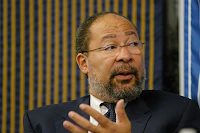Goldman Sachs and Work-Life Balance
Goldman Sachs announced this week that it had instituted ways to improve the work experience of analysts (in its BA program) and reduce the number of hours they work each week. It's the lore of investment banking to hear stories of analysts and MBA associates, too, who work long hours that stretch through the weekend and through holidays and vacation time. Goldman acknowledges that it is missing out on some top talent, when recruits have selected other finance jobs or industries because of work-life-balance issues. Talented BA's and MBA's will express an interest in corporate finance, will have the aptitude and drive to work on deals and with important clients, but, as Goldman sees it, they back out and accept offers elsewhere. And they may whisper to Goldman and other major banks that it wasn't about the compensation. Thus, they choose pathways that take them to the shorter hours and better lifestyles offered by hedge funds, smaller boutique firms, and the f...




